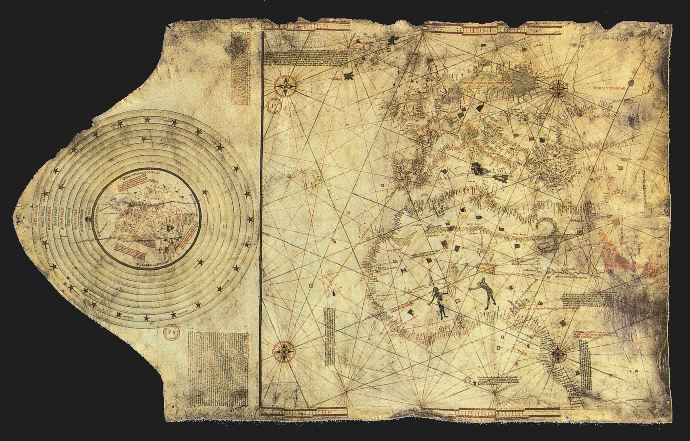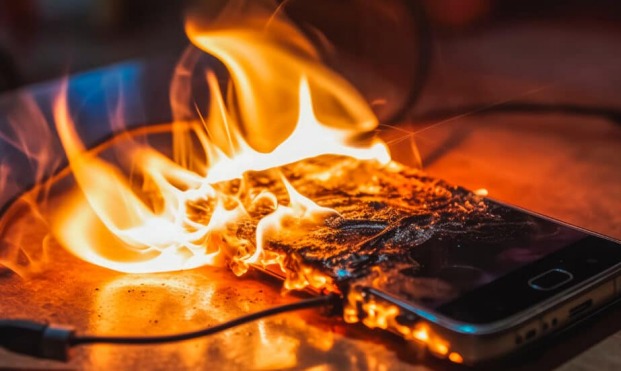By Katie Lannan
State House News Service
Indigenous people and other activists calling for the state to rename Columbus Day got support in their push Tuesday from some Italian-Americans who said they, too, think Massachusetts should make the change.
State law calls for the governor to annually proclaim the second Monday in October as Columbus Day, “to the end that the memory of the courage, perseverance and spiritual fervor of Christopher Columbus, discoverer of America, may be perpetuated.”
Less than two weeks before that holiday arrives, the Committee on State Administration and Regulatory Oversight heard testimony on a pair of bills (H 3191, S 2027) that would instead have the governor proclaim that day Indigenous People’s Day “to acknowledge the history of genocide and discrimination against Indigenous peoples, and to recognize and celebrate the thriving cultures and continued resistance and resilience of Indigenous peoples and their tribal nations.”
Supporters of the bills pushed back against the notion that the Italian navigator Columbus truly discovered the Americas, lands that were already populated, and said the switch would recognize the resilience of Indigenous people who endured colonization.
Mahtowin Munro, who is Lakota and spoke on behalf of United American Indians of New England and the statewide Indigenous Peoples Day campaign, said Indigenous people have been asking for the replacement of Columbus Day since the 1970s.
“Nearly all of us were falsely taught as young children that Columbus discovered America,” she said. “Indigenous people were not discovered by anybody since we were already here and were certainly not lost. We did not need to have civilization or spirituality brought to us since we already had many civilizations and beliefs.”
Faries Gray, sagamore of the Massachusett Tribe of Ponkapoag, said Indigenous people throughout the Americas view Columbus as “a terrorist” and celebrating him with a holiday teaches children “that it’s acceptable to do this to Indigenous people.”
Alex DeFronzo, an Italian-American East Boston resident, said Columbus documented in his writings “his legacy of genocide against the Taino and Carib peoples, sex trafficking of Indigenous women and girls and enslavement of hundreds of Indigenous people.”
“The Massachusett and Wampanoag people for over 8,000 years before the arrival of European colonizers took care of this land in a sustainable way,” DeFronzo said. “I think if we’re going to honor and celebrate one or the other on the second Monday of October, it’s obvious which is worthy and which is not.”
The only person who testified against the bills during the hearing, Christopher Spagnuolo, described Columbus as a “complicated historical figure” and said there can be different interpretations of his diaries.
Spagnuolo said the first national observance of Columbus Day, in 1892, was “to atone for a racist crime” — the lynching of a group of Italian men in New Orleans, one of a series of acts of violence and discrimination in the country’s history against Italian immigrants and Italian-Americans.
“Removing Columbus Day sets a bad precedent,” he said. “It elevates one culture while marginalizing another. It is hurtful to all immigrants that view the day as a celebration of being accepted in America after decades of experiencing racism, prejudice and violence. Columbus Day symbolizes the immigrant experience in the U.S. and the struggle for acceptance, human rights and dignity.”
He suggested a compromise that honors Italian-Americans in October and Indigenous people in November, which is recognized as national Native American Heritage Month.
Heather Leavell, who co-founded Italian Americans for Indigenous People’s Day, said her group empathizes with the feelings of Italian-Americans who view the day as a symbol of their ancestors overcoming adversity.
“But things are much different for us today,” said Leavell, a Bedford resident. “Our culture is celebrated, especially throughout October, which is officially recognized as Italian-American Heritage Month in the commonwealth. We enjoy a level of status and recognition in society that native people do not, and we have a responsibility to use that platform we now have to ensure we are not repeating the same patterns of abuse that our ancestors endured.”
The timing of the hearing makes it unlikely that the bill — which would still need a committee vote, multiple votes in both branches of the Legislature and approval from Gov. Charlie Baker — could become law before this year’s holiday, on Oct.11.
Last session, the committee killed the bill by including it in an order for further study.
Several Massachusetts communities have already taken action to locally observe or declare an Indigenous Peoples Day. Sen. Jo Comerford, who filed the Senate version of the bill, said six cities and towns in her district have done so, and Somerville Rep. Christine Barber, a committee member who said she hopes the bill advances, said that the change to Indigenous Peoples Day in her city has been an “incredibly helpful way to educate people and to raise awareness about Indigenous people who continue to live in our community and whose land we’re on.”
Comerford, a Northampton Democrat, told her colleagues that they could “spend this hearing and dozens more” recounting the stories of other explorers and adventurers who, unlike Columbus, were not honored with a state holiday.
Having the ability to create holidays and to “elevate certain historic figures and groups” gives lawmakers “an awesome responsibility…to get it right, not to disseminate false information, not to engage in historical revisionism,” she said.
Rep. Brandy Fluker Oakley, a lead sponsor of the House bill with Rep. Jack Lewis, said Hawaii, South Dakota, Maine, New Mexico, Oregon and Vermont have all permanently replaced Columbus Day with holidays recognizing Indigenous people. The Boston Democrat said that since 2018, eight states and Washington, D.C. have issued proclamations recognizing Indigenous Peoples Day, while Alabama and Oklahoma celebrate both holidays.
“Who we choose to celebrate demonstrates whose contributions we value in Massachusetts,” she said. “As we rightly criticize states and localities that cling to racist monuments of the Confederacy, Massachusetts should lead by recognizing that Columbus Day promotes a troubling racial history and instead we should show our support for indigenous neighbors by declaring this holiday.”
 New Bedford Guide Your Guide to New Bedford and South Coast, MA
New Bedford Guide Your Guide to New Bedford and South Coast, MA









Unfortunately, this debate is far from over. The people who want to promote IDP are justified in drawing attention to their history and how they were unjustly treated by the United States Government. However, It is unfortunate that they are using Columbus as a scapegoat to make their point and doing this at the expense of the truth about Columbus who was not a terrorist etc. while showing no sensitivity to how this holiday and man is connected to the Italian American Community for the last 120 years.
Munroe has not even tried to develop a dialogue with the Italian Organizations and her efforts to drive this issue is nothing more than being a bully with no thought of finding a more suitable solution to all parties.